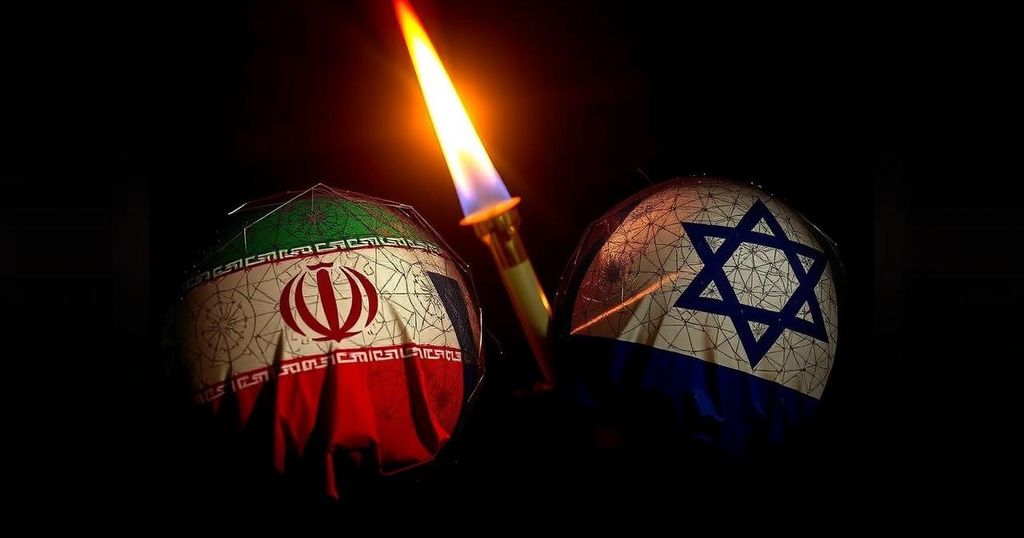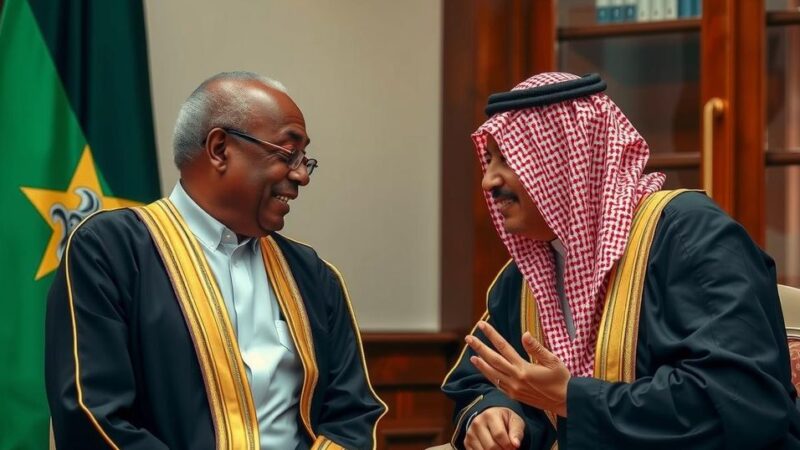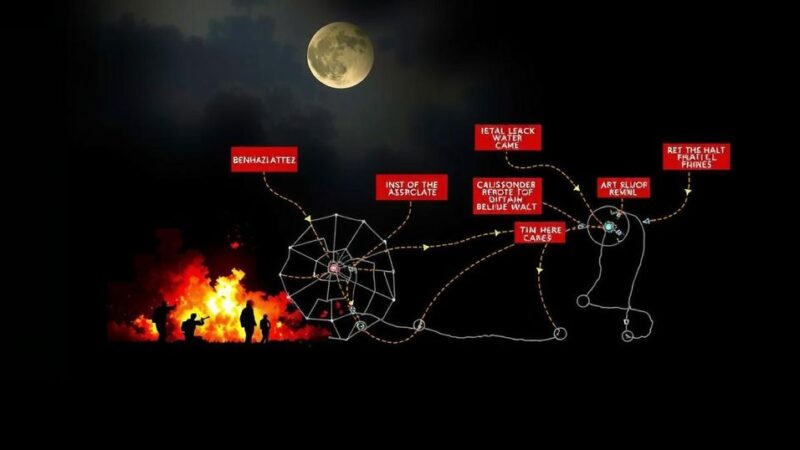The commander of Iran’s Revolutionary Guards has warned Israel against retaliating for a missile attack, as tensions escalate with Israeli military operations in Lebanon against Iranian-backed Hezbollah. US Defense Secretary Lloyd Austin is engaging with Israeli officials to mitigate risks of a wider conflict, while Iran’s Foreign Minister is attempting to foster dialogue during a Middle East tour. Israeli operations have resulted in significant casualties on both sides, further complicating the humanitarian situation in the region.
On Thursday, the commander of Iran’s Revolutionary Guards issued a stern warning to Israel, cautioning against any retaliatory strikes following a missile attack attributed to Iran. This warning comes in the context of Israel increasing military operations in Lebanon against Hezbollah, an Iranian-aligned militant group, which has raised concerns over a potential escalation of conflict in the Middle East. Commanding General Hossein Salami stated during a televised address, “We tell you (Israel) that if you commit any aggression against any point we will painfully attack the same point of yours,” asserting Iran’s capability to breach Israel’s defenses. Meanwhile, United States Defense Secretary Lloyd Austin engaged in discussions with Israeli Defense Minister Yoav Gallant on Wednesday, focusing on the situation in Lebanon and Gaza to prevent regional instability. In a related diplomatic effort, Iran’s Foreign Minister Abbas Araqchi is touring the Middle East, where he emphasized the importance of avoiding an expansion of conflict in meetings, including one with Egyptian President Abdel Fattah al-Sisi. Despite these diplomatic overtures, Israel has persisted in its military actions, launching airstrikes that have resulted in fatalities among Palestinian civilians in Gaza and heightened tensions along the Lebanese border. The ongoing military operations have led to significant casualties, with reports indicating that Israeli strikes have claimed the lives of numerous Hezbollah fighters and civilians, while further complicating humanitarian conditions in Gaza and southern Lebanon. In a recent escalation, Israeli airstrikes have also affected civilian infrastructures, stoking fears of broader consequences. Calls for ceasefire and negotiations have been met with resistance from both sides, as military engagements continue to escalate, raising the specter of a larger regional conflict.
The situation between Israel and Iran has been fraught with tension, significantly affecting regional stability in the Middle East. Israel views Iran’s support for Hezbollah and other militant groups as a direct threat to its national security. Following a series of missile attacks attributed to Iran, Israeli military actions under the guise of counter-terrorism have been intensified, exacerbating the conflict with Hezbollah, which has retaliated through missile strikes. The growing hostilities represent years of intricate geopolitical strife, where multiple layers of historical grievances, territorial disputes, and ideological differences fuel ongoing confrontations.
In summary, the exchange of warnings and military actions between Iran and Israel illustrates the precarious nature of peace in the Middle East. As Israel strengthens its military presence in Lebanon and continues airstrikes against Palestinian groups in Gaza, the potential for a broader conflict looms large. Diplomatic efforts by the United States and other regional actors, while ongoing, face significant challenges as both Iran and Israel prepare for continued hostilities. The statements from both military leaders reflect the high stakes involved, with regional stability hanging in the balance.
Original Source: www.jpost.com






